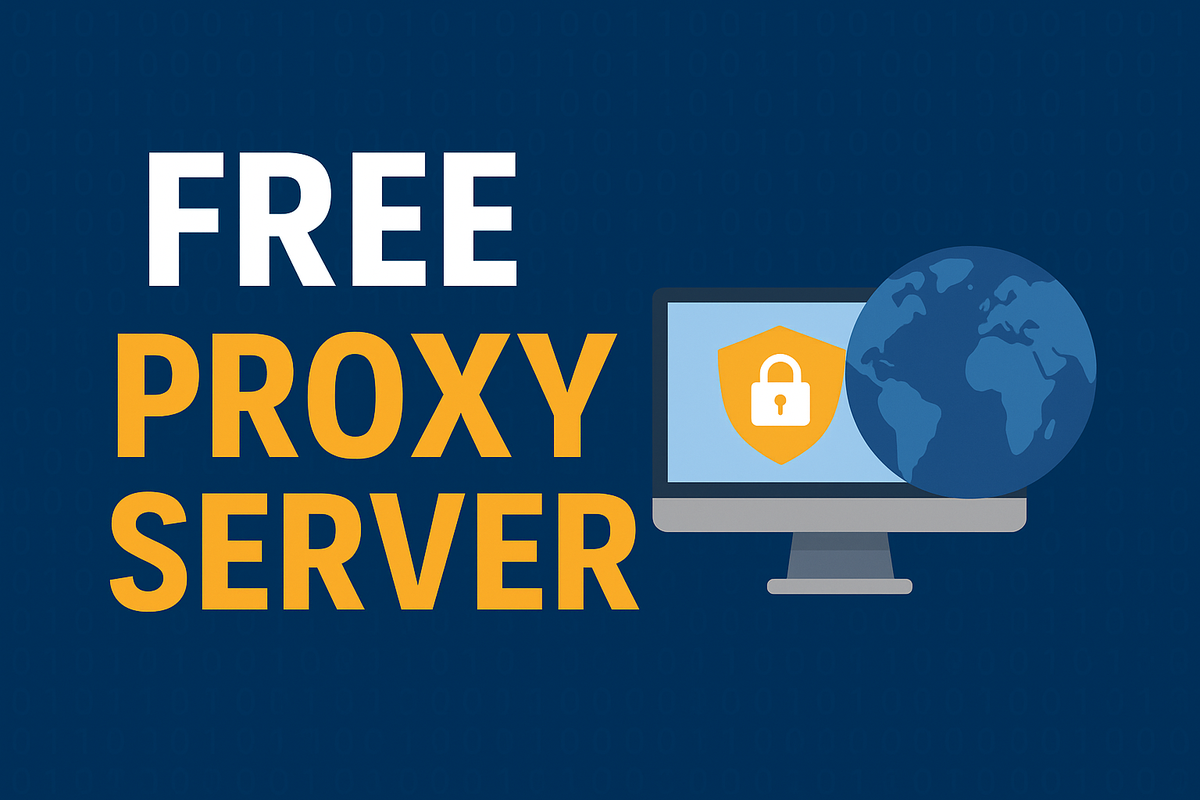Free Proxy Servers: A Complete Guide + Top Free Proxy Providers
In today’s digital world, online privacy, security, and unrestricted access to content have become major concerns for internet users. Whether it’s bypassing geo-restrictions, hiding your IP address, or testing web applications from different locations, a proxy server often comes in handy. Among the many types of proxies, free proxy servers are especially popular because they don’t cost anything and can be accessed by anyone with just a few clicks.
But here’s the big question: are free proxies really safe, reliable, and worth using? In this blog, we’ll dive deep into what proxy servers are, how they work, the pros and cons of free proxies, and provide a list of some of the most widely used free proxy websites.
What Is a Proxy Server?
A proxy server is an intermediary between your computer (or device) and the internet. Instead of connecting directly to a website, your request goes through the proxy first. The website only sees the proxy’s IP address, not yours.
Think of it like this:
- Without a proxy → You → Website (your real IP is visible)
- With a proxy → You → Proxy server → Website (website only sees the proxy’s IP)
Types of Proxy Servers
- HTTP Proxy – Works for browsing websites; handles HTTP traffic.
- HTTPS/SSL Proxy – Encrypts data for safer browsing.
- SOCKS Proxy (SOCKS5) – Handles any type of traffic, including emails, torrents, and video streaming.
- Transparent Proxy – Reveals your IP address but still routes traffic through the proxy.
- Anonymous Proxy – Hides your IP but may still reveal you’re using a proxy.
- Elite/High-Anonymity Proxy – Provides maximum privacy; difficult to detect.
Why Use a Free Proxy Server?
- Bypass geo-restrictions
- Hide your IP address
- Web scraping & SEO testing
- Access blocked sites at work or school
- Free of cost
The Risks of Free Proxy Servers
- Security risks: logging, malware, ads
- Slow speeds
- No encryption
- Unreliable availability
- Limited features
Free Proxy vs VPN
| Feature | Free Proxy | VPN |
|---|---|---|
| Encryption | Often none | Strong encryption (AES-256) |
| Anonymity | Basic IP hiding | Full anonymity + encryption |
| Speed | Can be slow | Optimized servers |
| Cost | Free | Paid |
| Reliability | Unstable | Stable |
Top Free Proxy Websites
- Hide.me Proxy
- Hidester Proxy
- ProxySite.com
- Whoer.net Proxy
- HMA Free Proxy
- KProxy
- 4everproxy
- CroxyProxy
- ProxFree
- Tor Browser
Tips for Safe Free Proxy Usage
- Avoid sensitive logins on free proxies.
- Clear cookies and cache when switching.
- Use HTTPS websites for security.
- Rotate proxies regularly.
- Consider upgrading to VPNs for long-term use.
Conclusion
Free proxy servers can be incredibly useful tools for bypassing restrictions, hiding your IP, and performing light anonymous browsing. They’re especially attractive because they don’t cost anything and are easy to set up. However, they should not be considered a secure solution for privacy or handling sensitive data.
For casual use—such as unblocking a website at school, testing web pages, or streaming a video—free proxies are a great option. For business or personal security, a paid VPN or premium proxy is the better long-term investment.



